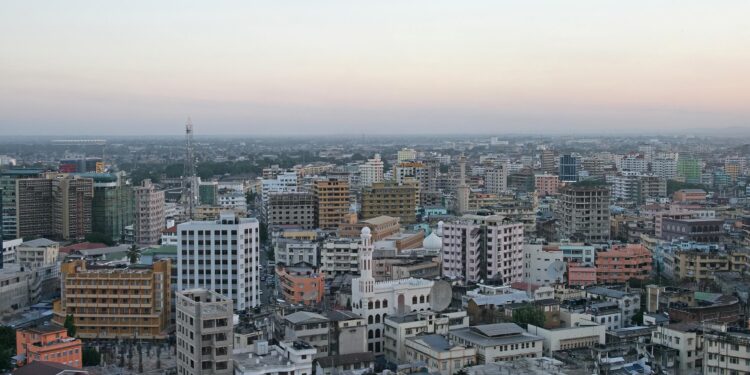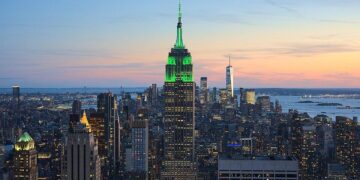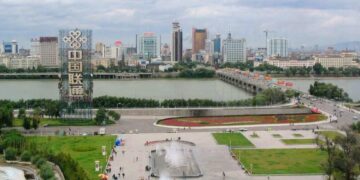Dar es Salaam’s Persistent Traffic Gridlock: Economic Strain, Health Hazards, and Environmental Consequences
At dawn in Dar es Salaam, Tanzania’s vibrant economic center, the city awakens to a familiar challenge that shadows daily life: severe traffic congestion. The streets quickly become overwhelmed with vehicles, creating not only frustrating delays for commuters but also imposing serious threats on the city’s economy, public health, and environment. Recent data reveals that residents often spend over three hours each day trapped in traffic jams—a situation that extends well beyond inconvenience. This gridlock inflates business costs, degrades air quality, and diminishes overall urban livability. This article delves into the complex repercussions of Dar es Salaam’s traffic woes by analyzing its root causes and highlighting urgent sustainable strategies needed to ease this escalating urban crisis.
Economic Consequences of Traffic Congestion in Dar es Salaam
The worsening traffic situation in Dar es Salaam has become a significant barrier to economic advancement and operational efficiency across multiple industries. Investors are increasingly cautious as prolonged travel times translate directly into lost productivity and higher expenses for businesses. Both small enterprises and large corporations face persistent delays disrupting supply chains and service delivery—ultimately affecting customer satisfaction levels and profit margins.
Recent analyses estimate that daily financial losses due to traffic congestion run into millions of dollars—an alarming figure reflecting how deeply intertwined mobility challenges are with the city’s broader economic health. For example, logistics companies report increased fuel consumption costs while retailers experience inventory shortages caused by unpredictable delivery schedules.
Beyond monetary setbacks lies an equally pressing concern: rising air pollution from idling vehicles contributes heavily to respiratory illnesses among residents while exacerbating climate change impacts locally through elevated carbon emissions. Addressing these intertwined issues demands comprehensive urban planning reforms focused on expanding efficient public transit options alongside infrastructure upgrades designed for smoother vehicular flow.
Health Impacts Stemming from Chronic Traffic Congestion
The persistent gridlock gripping Dar es Salaam carries profound health risks extending far beyond commuter frustration or lost time. Continuous exposure to exhaust fumes laden with nitrogen dioxide (NO₂), fine particulate matter (PM2.5), and other pollutants significantly increases incidences of respiratory ailments such as asthma attacks, bronchitis, and chronic obstructive pulmonary disease (COPD). Vulnerable groups—including children under five years old and elderly citizens—are disproportionately affected due to their heightened sensitivity to poor air quality.
Moreover, mental well-being suffers as extended periods spent stuck in heavy traffic elevate stress hormones like cortisol among drivers and passengers alike; this chronic stress is linked with anxiety disorders as well as depression symptoms across urban populations worldwide. Additionally, sedentary behavior encouraged by long commutes contributes indirectly toward obesity rates rising within the community—a known risk factor for cardiovascular diseases.
To mitigate these multifaceted health challenges effectively requires policymakers’ commitment toward promoting active transportation modes such as walking or cycling combined with robust investments in reliable mass transit systems proven successful elsewhere—for instance Singapore’s extensive MRT network which has drastically reduced private car dependency while improving public health outcomes.
Innovative Approaches to Reduce Environmental Harm Caused by Urban Traffic
Tackling Dar es Salaam’s mounting environmental damage linked with road congestion calls for integrated solutions emphasizing sustainability alongside technological innovation:
- Scaling up Bus Rapid Transit (BRT) networks: Expanding dedicated bus corridors can offer fast-moving alternatives reducing reliance on personal cars.
- Developing pedestrian-friendly zones: Creating safe sidewalks coupled with protected bike lanes encourages non-motorized transport choices.
- Deploying intelligent traffic control systems: Utilizing real-time monitoring tools helps optimize signal timings minimizing idle times at intersections.
In addition:
- Encouraging electric vehicle adoption: Installing widespread EV charging stations paired with incentives can accelerate transition away from fossil-fuel-powered cars.
- Implementing green building codes: Mandating energy-efficient designs reduces overall carbon footprints associated with new developments.
- Create low-emission zones: Restricting high-polluting vehicles within central districts improves local air quality dramatically.
| Sustainable Solution | Main Advantage |
|---|---|
| BRT Expansion Programs | Eases road congestion; lowers pollution levels |
| Cyclist & Pedestrian Infrastructure Development | Promotes healthier lifestyles; cuts emissions |
| Smart Traffic Systems Implementation | Smoother vehicle flow; less fuel wastage |
| E-Vehicle Incentives & Charging Networks | Diminished air contaminants; quieter streets |
| Sustainable Building Practices Adoption < td > Reduced greenhouse gas output during construction/operation | |















